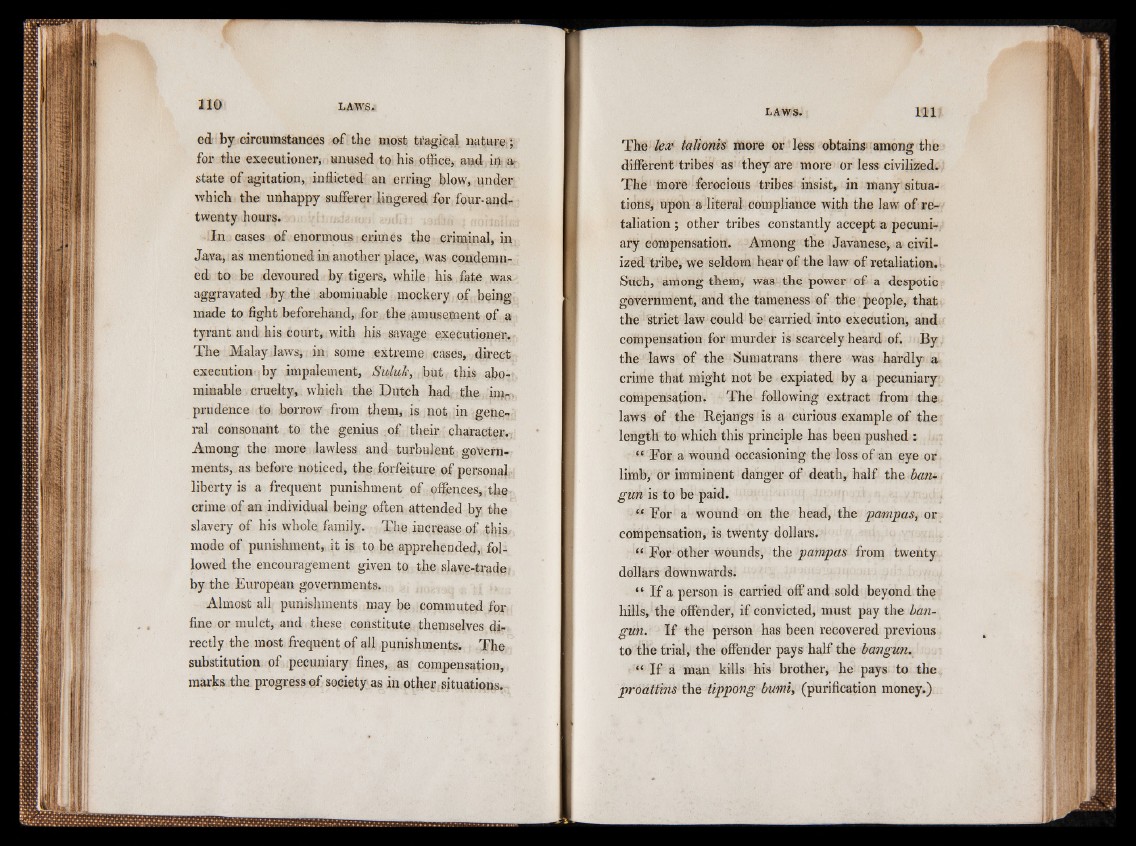
ed by circumstances of the most tragical nature *
for the executioner, unused to his office, and in a-
state of agitation, inflicted an erring blow, under
which the unhappy sufferer lingered for four-and-
twenty hours.
In cases of enormous crimes the criminal, in
Java, as mentioned in another place, was condemned
to be devoured by tigers, while his fate was
aggravated by the abominable mockery of being
made to fight beforehand, for the amusement of a
tyrant and his court, with his savage executioner.
The Malay laws, in, some extreme cases, direct
execution by impalement, Suluk, but this abominable
cruelty, which the Dutch had the imprudence
to borrow from them, is not in general
consonant to the genius of their character..
Among the more lawless and turbulent governments,
as before noticed, the forfeiture of personal
liberty is a frequent punishment of offences, the
crime of an individual being often attended by the
slavery of his whole family. The increase of this,
mode of punishment, it is to be apprehended, followed
the encouragement given to the slave-trade
by the European governments.
Almost all punishments may be commuted for
fine or mulct, and these constitute themselves directly
the most frequent of all punishments. The
substitution of pecuniary fines, as compensation,
marks the progress of society as in other situations.
The lex- talionis more or less obtains among the
different tribes as they are more or less civilized.
The more ferocious tribes insist, in many situations,
upon a literal compliance with the law of retaliation
; other tribes constantly accept a pecuniary
compensation. Among the Javanese, a civilized
tribe, we seldom hear of the law of retaliation.
<Such, among them, was the power of a despotic
government, and the tameness of the people, that
the strict law could be carried into execution, and
compensation for murder is scarcely heard of. By
the laws of the Sumatrans there was hardly a
crime that might not be expiated by a pecuniary
compensation. The following extract from the
laws of the Bejangs is a curious example of the
length to which this principle has been pushed :
“ For a wound occasioning the loss of an eye or
limb, or imminent danger of death, half the ban-
gun is to be paid.
“ For a wound on the head, the pampas, or
compensation, is twenty dollars.
“ For other wounds, the pampas from twenty
dollars downwards.
“ If a person is carried off and sold beyond the
hills, the offender, if convicted, must pay the ban-
gun. If the person has been recovered previous
to the trial, the offender pays half the bangun.
“ If a man kills his brother, he pays to the
proattins the tippong bumi, (purification money.)